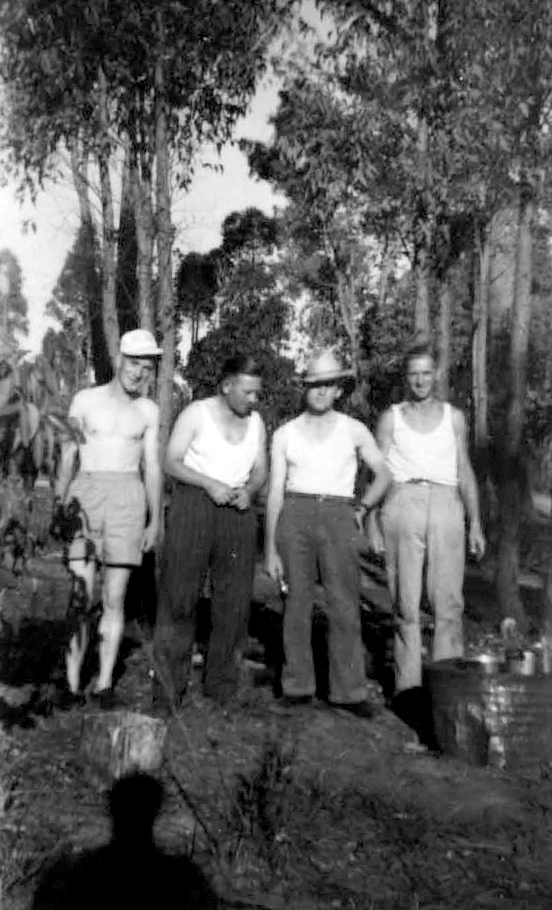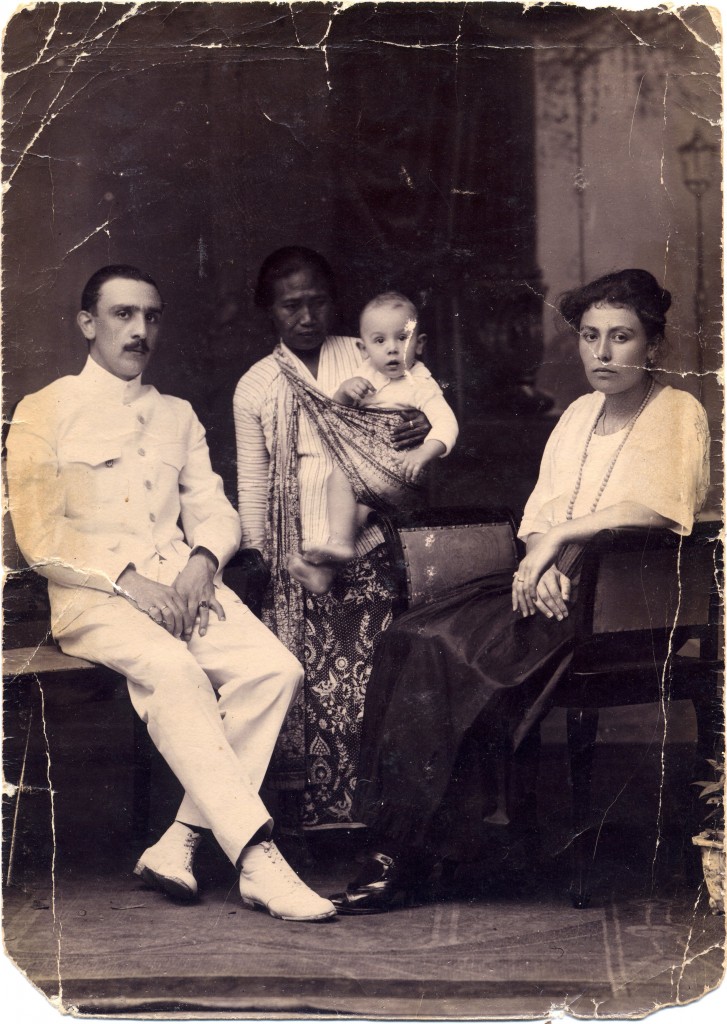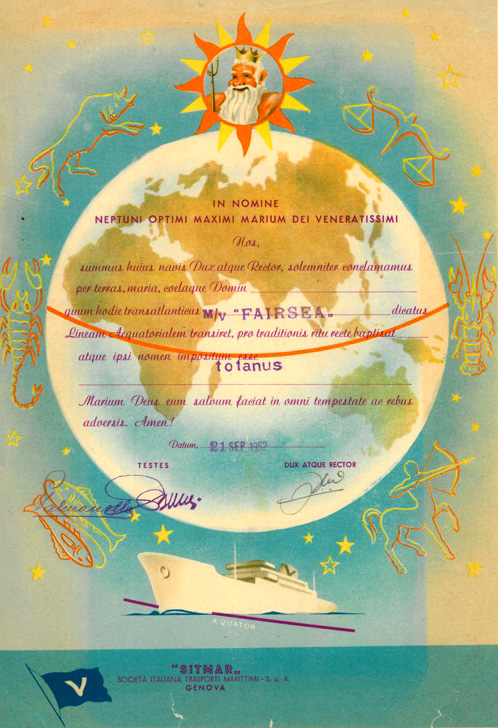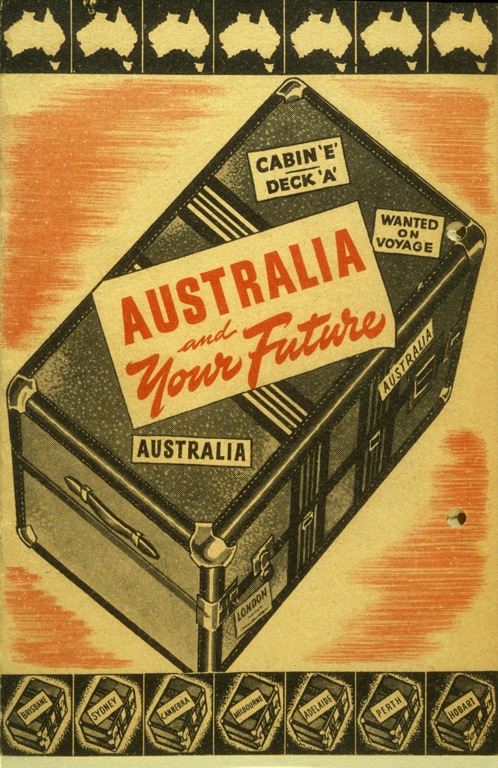Maie Barrow
Estonian Archives in Australia
The Estonian Archives in Australia, situated at Estonian House 141 Campbell St Surry Hills holds a collection of material that reflects the lives and achievements of Estonians in Australia. Founded in 1952 by the Council of Estonian Societies in Australia it comprises the records, personal papers, publications, memoirs, artefacts, photographs and sound recordings of the lives, activities and achievements of the Estonians in Australia. These records date back to the “first fleeters” of Estonians who came to Australia in the late 1880s, as well as those of the second wave of migration in the 1920s but the bulk of the material relates to the post WW II immigration. This collection is not only important to Estonia and the Australians of Estonian descent but also to Australia as it chronicles the contribution of the immigrants to the Australia of today.
Maie Barrow has been the Honorary Archivist for EAA for over twenty years. In that time she has lead the transformation of a large, mainly uncatalogued collection into an exemplary ethnic archive. With her team of volunteers Maie welcomes visits from members of other ethnic communities who are considering starting their own archive. With a Masters degree in Information Management, she is always ready to support and encourage the establishments of new ethnic archives. Maie participates in the annual Balthernet summer schools in Estonia for expatriate archivists and lectures at their conferences. She curated the “Happily Australian but Estonian too” exhibition in the Migration Museum in Adelaide in 2003 and the Canberra Heritage Library in 2004. In conjunction with the “Our new home-Meie uus kodu” exhibition in 2006 Maie gave a lecture at the Powerhouse Museum on the Estonians in Australia. Maie has lectured extensively in Australia and abroad on the lives and achievements of Estonians in Australia and the importance of preserving the Estonian heritage abroad. After careers in scientific research and university administration, she was the archivist at Botany Bay City Council for fifteen years.
Arjan van der Boon
Manukau Institute Of Technology and Founder, Dutch Museum in Foxton, New Zealand
“Making the Invisible Immigrants Visible: Establishing a Place to Preserve the Story and Identity of the Dutch in New Zealand.”
Arjan teaches international marketing, events marketing, and market development and sales at MIT. He is contemplating a PhD Research Proposal to identify the key factors that contributed to the success of Dutch immigrant entrepreneurs in New Zealand. As part of his community involvement, Arjan works on the Dutch Connection project to set up a Museum and Cultural Centre in Foxton as part of a large tourism facility. This centre will preserve the cultural heritage of the Dutch in New Zealand, and will tell their story of immigration and settlement. Foxton boasts a 30 metre high replica 17th century Dutch Stellingmolen, which attracts some 30,000 visitors p.a. Before turning to education, Arjan had a career in marketing communications that spanned some 20 years. He has worked for global ICT companies such as Microsoft and IBM, local hi-tech companies Telecom and Zeacom, and communications consultancy agencies Hill & Knowlton (Amsterdam) and Botica Conroy (Auckland). In the Netherlands he also worked for financial services company AMEV and publisher Kluwer Bedrijfswetenschappen.
Pauline Cockrill
History South Australia
“Keeping our migrant stories alive in community museums: Some South Australian case studies”
Using some examples of migrant community museums in South Australia, this paper looks at the challenges facing migrant groups wanting to keep their cultural history alive through traditional museums as well as new ways via websites and social media.
Pauline Cockrill is a Community History Officer within History SA, in Adelaide. Pauline works with South Australia’s community history network to develop new programs and activities and to build the skills and professional practice of the community museums sector in South Australia. Pauline has many years’ curatorial experience and has worked with a variety of collections, in both small community museums and large institutions in the UK and Australia. She began her museum career at the Victoria & Albert Museum and in 1992 migrated to Australia. She spent 12 years in Alice Springs, as the first curator of the National Pioneer Women’s Hall of Fame and in 2001 was awarded the Northern Territory Government’s Women’s Fellowship, visiting women’s museums in the US, Europe and Africa. She recently completed a Masters in Digital Heritage from the University of Leicester, School of Museum Studies.
Willem Cosijn
Consul-General of the Netherlands in Sydney
Mr Willem N. Cosijn was born in Leiden on 12 October 1965. After attending secondary school, he obtained a degree in Modern History at Leiden University. At the Royal Netherlands Naval College he trained as a naval logistics officer. In 2000 he took the introductory course in Dutch Law at the Open University. From 1991 to 2006 Mr Cosijn has held various on- and offshore posts in the Royal Netherlands Navy. After working in its Public Information Division, he received an appointment on board the De Ruyter, followed by several appointments in the Navy’s Personnel Department. He joined the Royal Court seven years ago as the Master of Ceremonies to the former Queen Beatrix of the Netherlands and later on to His Majesty King Willem-Alexander and Queen Maxima. Mr Cosijn is always interested in discussions on how to strengthen the ties between the Netherlands and Australia. His focus is on our priority sectors: agribusiness, infrastructure, creative design, life sciences and health.
Louise Denoon
Senior Curator, State Library of New South Wales
“Collaboration, Creativity, Community”
The presentation will outline the resources of the State Library of New South Wales and suggest possibilities for collaboration.
Louise Denoon is Senior Curator, Research and Discovery, State Library of New South Wales. Louise has worked in the cultural sector for more than 20 years. Previously Executive Manager, Queensland Memory at State Library of Queensland, the Inaugural Director at Global Arts Link in Ipswich and Senior Curator at the Museum of Brisbane. As an experienced cultural leader she has been responsible for a number of important exhibitions and initiatives including developing new models of community engagement and participation.
Robyn Gamble
Director for Audiovisual Preservation, National Archives of Australia
Mara de Groot
Executive Manager LDE Center for Global Heritage and Development, Leiden University
“TULIPANA, a Brazilian-Dutch shared heritage experience”
Brazil and the Netherlands share a common history going back as far as the 17th century. In more recent times the Dutch immigrants of the 19th and 20th century have established communities that still continue vividly until present. Compared with the hundreds of thousands of people who migrated from the Netherlands to Canada and Australia, Dutch migration to Brazil was very modest. Yet the contribution the Dutch settlers gave to contemporary Brazil is still recognizable. Their importance is visible through innovations in farming, cattle breeding and the production of flowers. The Dutch communities played and play an important role in trade between Brazil and the Netherlands. In some of these communities Dutch characteristics are still very noticeable in language, architecture and agriculture. Many migrants and their offspring still feel strongly attached to the Netherlands.
Both Brazilian and Dutch heritage institutions nowadays increase their focus of attention to shared heritage. The Centre for Global Heritage and Development (CGHD), a joint initiative by Leiden University, Delft Technical University and Erasmus University Rotterdam, has been approached by the Dutch migrant community in Brazil to organize a project that focuses on the (digital) preservation and online public access to the heritage collections of the community museums of Holambra and Castrolanda and the archive of the Dutch Association in Rio.
The TULIPANA program from the CGHD aims to preserve, maintain and provide access to the threatened documentary heritage of Dutch communities in Brazil. Using conservation and digitization techniques and online web publication a growing audience can learn about the migration and settlement of the Dutch in Brazil, their descendants and the development of their communities. Our main strategy is sharing knowledge and networks, while pairing national and regional archival institutions with local volunteers.
The heritage material in the Dutch colonies contains a wealth of information for a wide range of disciplines: anthropology, history, linguistics, genealogy and more. Developing and providing an online platform can raise academic interest and increase public awareness about this shared history and heritage. This will deepen and prolong the collective memory of these unique communities.
Mara de Groot studied Archaeology and Prehistory in Amsterdam (VU, 1996-2001) and Melbourne (University of Melbourne, 2000). After finishing her Masters she worked as a guide in Italy, focusing on (pre)Roman history. In 2005 Mara started working for the Netherlands Agency for Cultural Heritage (RCE) as an Archaeological Information Specialist. Her interest in international and shared heritage increased and she followed a traineeship at the Centre for International Heritage Activities (CIE), primarily dealing with archaeological heritage management in the Caribbean.
Rik Hoekstra
Huygens ING
“Life courses and memorabilia in context: Perspectives for a database to connect research, community and cultural heritage”
Rik Hoekstra studied History at Leiden University, the Netherlands, wrote his PhD thesis on the colonial history of Mexico in the sixteenth and seventeenth centuries and graduated at Radbout University Nijmegen in 1993. After obtaining his PhD, he focused on publishing historical information on the internet and he worked at Leiden University and Huygens ING since 2000. He designed and managed numerous digital projects and publications, acting as the link between researchers and the programmers who build the websites and applications. The projects in which he was involved range from the Biography Portal of the Netherlands to the correspondence of William of Orange and from the medieval chronicles and charter registers to documents about the history of European Integration. He has been involved in the Huygens ING efforts for a Dutch-Australian migrant project from its very beginning. In addition to these activities, in his current research he focuses on the interaction between the early modern Spanish empire and its territories.
Helen Kon
Assistant Director, Audience Programs and Partnerships, National Museum of Australia
“The Business of Culture”
Helen Kon joined the National Museum of Australia in 2011 as Assistant Director Audience, Programs and Partnerships after also working in senior executive roles at the National Library of Australia and the State Library of New South Wales. Much of her work in these major cultural collecting institutions has been in the area of community engagement – building relationships with current and future generations. Her responsibilities have included education and public programs, web and new digital projects, publishing, marketing, evaluation, commercial operations, exhibitions, fundraising, friends, volunteers and programs such as the Community Heritage Grants. Prior to joining the cultural sector Helen worked at The Age newspaper, in curriculum development for the Victorian Ministry of Education and tutored at Melbourne University.One of Helen’s current priorities is to extend the National Museum’s engagement with the Australian community through new online and digital initiatives.
Helen Light
Multicultural New South Wales
John Petersen
Multicultural Heritage Consultant and Director, Duldig Studio Museum, Melbourne. Former and Founding Director, NSW Migration Heritage Centre at the Powerhouse Museum, Sydney.
Kim Tao
Australian National Maritime Museum
“Silent histories: telling refugee and child migrant stories at the Australian National Maritime Museum”
Kim Tao is the Curator of Post-Federation Immigration at the Australian National Maritime Museum in Sydney. She has a Bachelor of Arts and a Master of Arts in Museum Studies, both from the University of Sydney. Her research interests include migration history in museums, community engagement, and museums and national identity. In 2008 Kim was awarded a Churchill Fellowship to study strategies for building sustainable partnerships between museums and culturally diverse communities in the UK, Canada and USA.
Robyn Van-Dyk
Australian War Memorial
“Digitisation for Access and Preservation.”
The Memorial’s collections include material reflecting various military interactions between Australia and the Nederlands as well as personal collections that tell the stories of war experienced by Dutch immigrants. The collections are preserved for posterity and catalogued for public access. Digitisation and the publication online of archival documents is an important preservation tool used by the Memorial that also provides broad international access to Australia’s records of war. Throughout the centenary of the First World War the Memorial has a major digitisation, data and web development project Anzac Connections underway. The project is progressively delivering new, digitised collections to the website and aims to improve search and discovery on the site, and ways for people to interact with the collection.
Robyn van Dyk joined the Memorial as part of the Research Centre in 2002 and has been the Head of the Research Centre since December 2011. In 2014 Robyn was co-curator the First World War centenary exhibition Anzac Voices and is currently working on an exhibition on Australian military mapping with Australian Geospatial-intelligence Organisation opening April 2015. She is the concept leader for Anzac Connections the Memorial’s major centenary web initiative to increase the National Collection’s online availability and enhance the collection in the digital environment. With post graduate degrees in History and Library and Information Management, Robyn has published widely and delivered research papers at major national conferences. In October 2012, Robyn travelled to Afghanistan as the Memorial’s Official Curator, and spent several weeks observing conditions and collecting records and objects for the National Collection. Most recently Robyn will partner with the Australian National University in a major ARC funded research project into Borneo in the Second World War.
Aidan Wilson & Ingrid Mason
Intersect Australia Ltd / Australian National Data Service
“Managing Cultural Heritage: Models and Infrastructure for Safekeeping and Discovery”
Cultural heritage collections are developed to serve different community needs. The management of these collections requires: (1) an understanding of the cultural heritage embedded in that collection material; (2) the needs of that community to be able to access that collection and connect with their cultural heritage; and (3) the opportunity to enable the wider community to access and research cultural heritage diverse to their own. The management and governance (the models), the physical or digital spaces, and the capability (the infrastructure) to support cultural understanding and research, need to be aligned with the access and preservation requirements of the community. Aidan and Ingrid will speak about the way in which digital cultural heritage collections are created and managed and made accessible to the research community in Australia. This presentation will include a discussion on the Pacific and Regional Archive for Digital Sources in Endangered Cultures (PARADISEC) and the delivery of cultural collection material (held in state and federal cultural institutions) through online catalogues and via new services. In each case there is a move to making cultural collections discoverable, accessible and reusable through national infrastructure services provided by Intersect Australia and the Australian National Data Service (ANDS). Intersect is increasingly involved in providing infrastructure and services to support the discovery of research data across all subject domains including cultural heritage materials. ANDS plays a pivotal role in the coordination of research data management activities across Australian universities, research institutions and cultural agencies.
Aidan Wilson joined Intersect in 2015 as a data analyst to assist in the metadata management of research data collections. He holds a Bachelor of Liberal Studies, majoring in Linguistics from the University of Sydney, and a Master of Arts in Linguistics from the University of Melbourne. His academic research concentrates on the syntax and morphology of Australia’s indigenous languages. Since 2006, Aidan has been employed at the Pacific and Regional Archive for Digital Sources in Endangered Cultures (PARADISEC), an internationally recognised repository for ethnographic research materials. Throughout his time there, he was responsible for the digitisation of audio and video materials and the management of collection and item metadata. He also helped design and implement systems to publish metadata and enable discovery of PARADISEC’s collections.
Ingrid Mason is the Intersect primary contact point between ANDS and ACT universities. Ingrid is responsible for ANDS liaison at University of New South Wales, University of Technology, Sydney, University of Western Sydney, the Office of Environment and Heritage, Charles Sturt University, University of Canberra and the Australian National University. She is also an ANDS contact point for community engagement in NSW and the ACT. Ingrid has twenty years experience in diverse roles (project manager, repository manager, business analyst, librarian) working with technology in the university, cultural and government sectors in New Zealand and Australia. She has a Bachelor of Arts (English Literature) and Masters of Library and Information Studies (Victoria University of Wellington).
Klaas Woldring
Dutch Australian Cultural Centre (Holland House)



